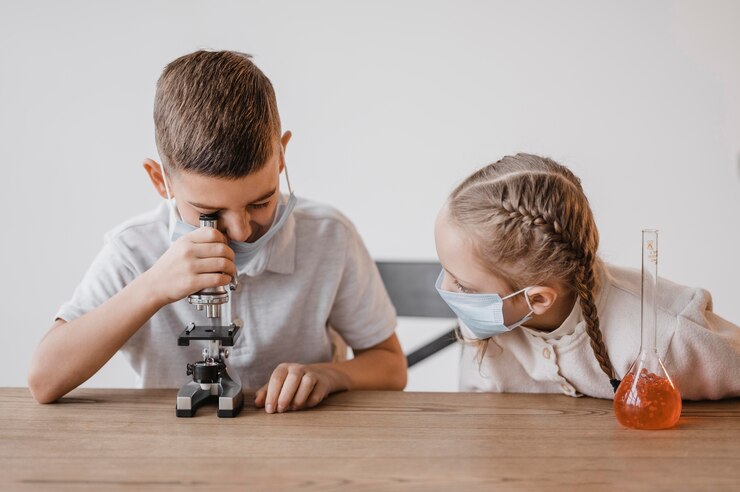In the world of scientific research, two key methods stand out: observational studies and experiments. Both are essential tools in exploring relationships, understanding causality, and drawing conclusions, but they differ significantly in their approaches. Understanding these differences is crucial when evaluating scientific data or conducting your own research. In this blog, we’ll break down the distinctions between observational studies and experiments, their advantages, disadvantages, and when each is most appropriate—an important topic even for educational content, such as science shows for kids.
What is an Observational Study?
An observational study is a type of research where scientists observe and record data without manipulating any variables. The goal is to gather information about naturally occurring behaviors, relationships, or events. Observational studies can be prospective (looking forward) or retrospective (looking back). Importantly, in this method, the researcher does not interfere with the subjects or influence the outcomes.
Example: A researcher studying the eating habits of a population could observe and record their food choices over time, without controlling what participants eat. This allows for the identification of potential trends or correlations, like the link between diet and heart disease.
Recommended Reading: 6 Best Children’s Science Museums in California, USA
Advantages of Observational Studies:
- Natural setting: Participants act in their usual environments, providing real-world insights.
- Ethical for sensitive subjects: Ideal for studying topics where experimentation may be unethical (e.g., smoking and cancer).
- Large-scale insights: Useful for tracking trends in large populations over time.
Disadvantages of Observational Studies:
- No causation: You can identify correlations but not causation. Just because two things happen together doesn’t mean one caused the other.
- Confounding variables: Other unknown factors could influence the results, making it hard to isolate specific causes.
What is an Experiment?

An experiment, on the other hand, involves manipulating one or more variables (known as independent variables) and observing their effect on the dependent variables. By controlling other factors, experiments allow researchers to make direct connections between cause and effect. This is a more powerful method for testing hypotheses, especially when determining causal relationships.
Example: In a controlled lab setting, researchers might assign one group to a new diet and another to their regular diet, then measure specific health outcomes like cholesterol levels or weight changes.
Advantages of Experiments:
- Causal relationships: You can establish a direct cause-and-effect link between variables.
- Controlled environment: Reduces the impact of confounding variables, offering clearer insights into the studied relationship.
- Reproducibility: Well-designed experiments can be repeated to verify findings.
Disadvantages of Experiments:
- Artificial setting: The controlled environment may not reflect real-world scenarios, limiting the generalizability of results.
- Ethical concerns: Some experiments may not be feasible due to ethical constraints, especially in fields like medicine or psychology.
- Expensive: Experiments can be resource-intensive, requiring significant time, money, and labor.
Key Differences Between Observational Study and Experiment

1. Manipulation of Variables: In an observational study, researchers do not manipulate variables; they simply observe. In an experiment, researchers actively manipulate variables to test their effects.
2. Causality: Observational studies can show correlations but not causality, whereas experiments can demonstrate cause-and-effect relationships due to controlled conditions.
3. Control of Environment: Experiments are typically conducted in controlled settings to minimize the effect of confounding variables. Observational studies, however, take place in natural settings, which can introduce additional variables beyond the researcher’s control.
4. Ethical Considerations: Observational studies are often used when manipulation of variables could pose ethical concerns. For example, it wouldn’t be ethical to expose someone to a harmful substance deliberately in an experiment, so researchers might instead use an observational approach.
5. Generalizability: Results from observational studies may be more applicable to real-world settings because they reflect natural behaviors. Experiments, however, offer more precise control, but their artificial nature may reduce generalizability.
Recommended Reading: Education Conferences in 2024
When to Use an Observational Study vs. an Experiment

Both methods have their strengths, and choosing between an observational study and an experiment depends on the research question, ethical considerations, and available resources.
a. Use an observational study study when you want to explore naturally occurring relationships, especially when it would be unethical or impractical to manipulate variables.
For example, public health studies often rely on observational data to understand the long-term effects of lifestyle choices on health outcomes. This approach can also inspire science project ideas, allowing students to investigate real-world phenomena without altering the environment.
b. Use an experiment when you’re looking to test a hypothesis and need clear evidence of a cause-and-effect relationship. This method is often used in fields like biology, psychology, and medicine, where researchers are interested in the specific impact of one variable on another. If you’re exploring easy science experiments, these controlled methods can help demonstrate cause-and-effect in a simple yet impactful way, making complex concepts easier to grasp.
Combining Both Methods: The Power of Triangulation

In many cases, researchers use a combination of observational studies and experiments to strengthen their findings. For example, an observational study might first reveal a correlation between two variables, like a particular diet and disease prevalence. Researchers might then follow up with an experiment to test if changing the diet directly impacts disease rates. This approach, known as triangulation, provides a more comprehensive understanding by leveraging the strengths of both methods.
Conclusion
Understanding the difference between an observational study and an experiment is essential for evaluating scientific research. Observational studies are ideal for capturing real-world behaviors and trends, while experiments offer the precision needed to determine causality. Both methods play critical roles in advancing scientific knowledge, and the choice between them depends on your research goals, the nature of the variables, and ethical considerations.
By combining critical thinking and understanding the nuances of these methods, you can make better-informed decisions, whether you’re conducting research or interpreting scientific findings. For anyone interested in conducting research, it’s essential to understand these differences and how they can impact the outcomes of your study.
Looking for a comprehensive parenting guide to ensure you are on the right track? Explore a wealth of parenting wisdom and educational insights in Moonpreneur’s blogs. Additionally, you can join our programs that nurture the next generation of innovators. Book a free trial now!


























Observational studies are mostly used in epidemiology, market research and social sciences whereas Experimental studies are generally applied in medical research, psychology and product testing.
I was expecting to get some statistical data for both observational and experimental studies based on real case studies. I recommend including that in your blog if possible. It would make it even more insightful.